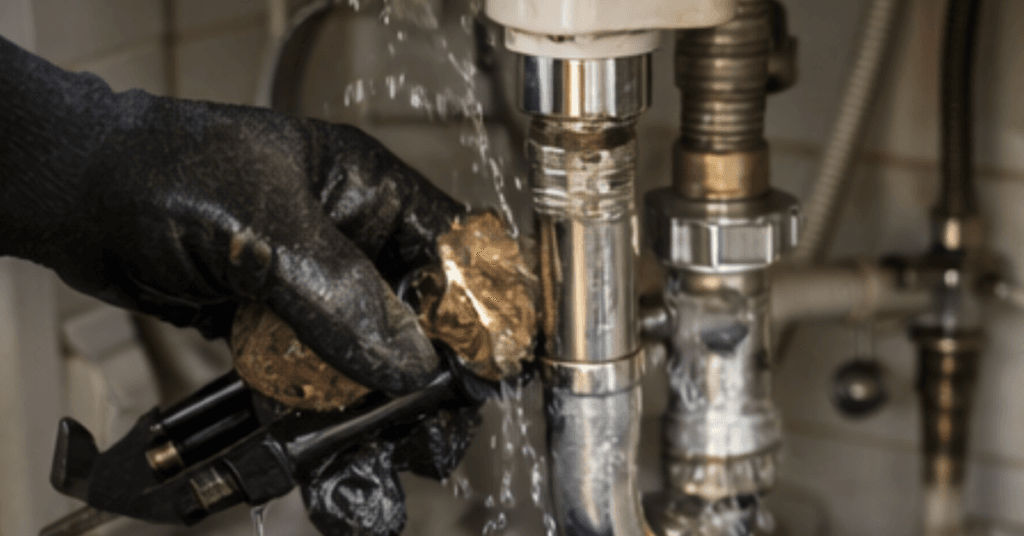
Water bills can add up quickly, especially in growing communities like Gresham, Oregon. Fortunately, lowering your water bill doesn’t always require expensive upgrades or major plumbing work. Many simple plumbing tweaks can help you conserve water, reduce your utility costs, and even extend the life of your plumbing system. In this guide, Einstein Pros Gresham will walk you through practical steps to save water and money—without sacrificing comfort.
Why Water Conservation Matters in Gresham
Gresham residents rely on clean, safe water provided by local utilities, including the Portland Water Bureau. Conserving water not only lowers your bill but helps preserve this vital resource for the entire community. As water rates fluctuate and infrastructure ages, smart water use is a key way to keep costs manageable.
5 Simple Plumbing Tweaks to Lower Your Water Bill in Gresham
1. Fix Leaks Immediately
The most common culprit of high water bills is a leak. A small drip from a faucet or running toilet can waste hundreds of gallons monthly. Check your faucets, showerheads, toilets, and visible pipes regularly. If you hear dripping or see water pooling, call Einstein Pros Gresham to quickly diagnose and repair leaks before they escalate.
2. Install Low-Flow Fixtures
Switching to low-flow faucets, showerheads, and toilets can dramatically reduce water use without compromising performance. The EPA’s WaterSense program certifies water-efficient products that meet strict criteria for performance and savings. Installing WaterSense-labeled fixtures can cut water use by 20-30%.
3. Use Faucet Aerators
Faucet aerators mix air with water to reduce flow while maintaining pressure. They’re inexpensive, easy to install, and can save several gallons per day per fixture. Einstein Pros Gresham can recommend and install the right aerators to optimize your home’s water use.
4. Upgrade to a High-Efficiency Toilet
Older toilets use as much as 3.5 to 7 gallons per flush. Modern high-efficiency toilets (HETs) use 1.28 gallons or less per flush, reducing water use by up to 60%. If your toilet is over 10 years old, replacing it with a WaterSense-certified model is a smart investment that will pay off in savings.
5. Check Your Water Heater Settings
Water heating accounts for a significant portion of your water bill, especially if you use a lot of hot water. Lowering your water heater temperature to around 120°F can reduce energy consumption and water waste. Additionally, insulating your water heater and pipes keeps water hotter longer, reducing the need for extended water flow.
Bonus Tips for Smart Water Use
- Only Run Full Loads: Whether it’s your dishwasher or washing machine, running only full loads maximizes water efficiency.
- Turn Off Taps When Not in Use: Simple habits like turning off the tap while brushing teeth or washing dishes save gallons daily.
- Harvest Rainwater: If your property allows, consider rain barrels for watering gardens, reducing outdoor water use.
Why Choose Einstein Pros Gresham?
At Einstein Pros Gresham, we specialize in helping local homeowners optimize their plumbing systems for efficiency and savings. Whether it’s fixing leaks, installing water-saving fixtures, or advising on plumbing upgrades, our licensed plumbers provide expert service you can trust. Learn more about our plumbing maintenance services and how we help Gresham homeowners save water and money.
Related Resources from Einstein Pros Gresham
- How to Prevent Basement Flooding in Gresham
- Signs You Need a Water Heater Repair or Replacement
- The Importance of Regular Plumbing Inspections
Final Thoughts
Lowering your water bill in Gresham doesn’t have to be complicated or expensive. With simple plumbing tweaks—like fixing leaks, installing low-flow fixtures, and upgrading your toilet—you can start saving water and money immediately. Contact Einstein Pros Gresham today for a free consultation and make your home more water-efficient.
References:
- Portland Water Bureau: Water Conservation Tips
- EPA WaterSense Program: Certified Water-Efficient Products
- Energy.gov: Water Heating Efficiency